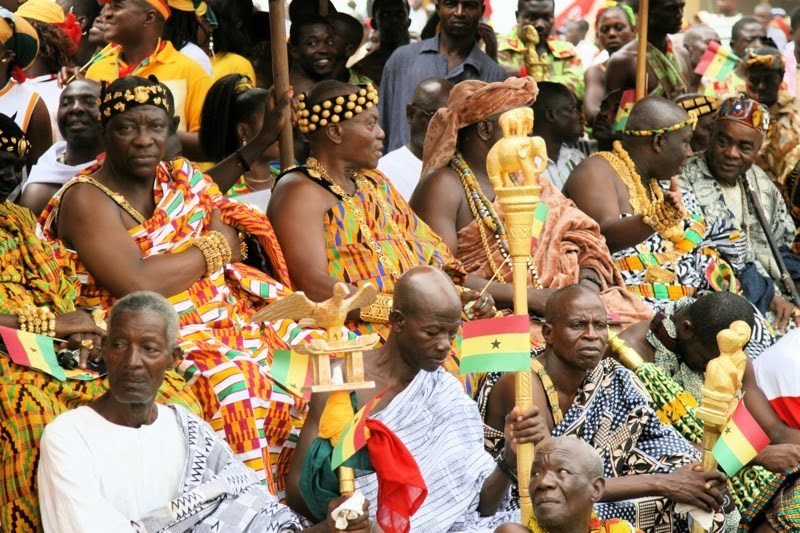The Asante people of Ghana have a rich and fascinating history that dates back centuries. In the 17th century, Asante emerged as a dominant power in West Africa and established a sophisticated system of governance, economy, and culture. Before this, the Asante was a tributary state to the centralized hierarchical Denkyira kingdom until Asantehene Osei Kofi Tutu I, the military leader and head of the Oyoko clan, founded the Asante kingdom.
Osei Tutu obtained the support of other clan chiefs and, using Kumasi as the central base, subdued surrounding states. He challenged and eventually defeated Denkyira in 1701, and from this, the name Asante came to be. Realizing the weakness of a loose confederation of Akan states, Osei Tutu strengthened the centralization of the surrounding Akan groups and expanded the powers of the judiciary system within the centralized government. Thus, this loose confederation of small city-states grew into a kingdom or empire looking to expand its land. Newly conquered areas had the option of joining the empire or becoming tributary states. Opoku Ware I, Osei Tutu’s successor, extended the borders.
The Asante are renowned for their exceptional craftsmanship in gold, which played a significant role in their economic prosperity. The tribe controlled the gold trade in West Africa, which allowed them to amass wealth and power. The Asante’s formidable military organization and tactical genius also enabled them to hold off British forces for many years, inspiring other African nations to resist colonialism.
The Asante Empire was one of the few African states that seriously resisted European colonization. Between 1823 and 1896, the United Kingdom of Great Britain and Ireland fought four wars against the Asante kings: the Anglo-Asante Wars. The Asante state strongly resisted attempts by Europeans, mainly the Kingdom of Great Britain, to conquer them. Asante gave little to no deference to colonial authorities. In 1901, the British finally defeated the state following the 1900 War of the Golden Stool, and the Asante Empire was made a British protectorate in 1902, with the Asante capital Kumasi annexed into the British empire. However, the Asante still largely governed themselves.
In 1926, the British permitted the repatriation of Asantehene Prempeh I, whom they had exiled to Seychelles in 1896, and allowed him to adopt the title Kumasehene, but not Asantehene. However, in 1935, the British finally granted the Asante self-rule sovereignty as the Kingdom of Asante, and the Asante King title of Asantehene was revived. Despite the impact of colonialism on the Asante, they have a vibrant culture and traditions that have been passed down through generations. Their religious practices involve a pantheon of deities, including the powerful god of war and victory, Okomfo Anokye. They celebrate festivals such as the Adae festival, which honors their ancestors and strengthens their ties as a community.
Today, Asante continues to thrive as an important cultural and economic force in Ghana. Their legacy is one of resilience, creativity, and ingenuity, and their contributions to Ghana’s history and culture cannot be overstated. Thanks to their long and complex history, the Asante people have left an indelible mark on the world and remain a testament to the power of human resilience and the beauty of diverse cultures.
READ NEXT ON: Ankos Festival






































